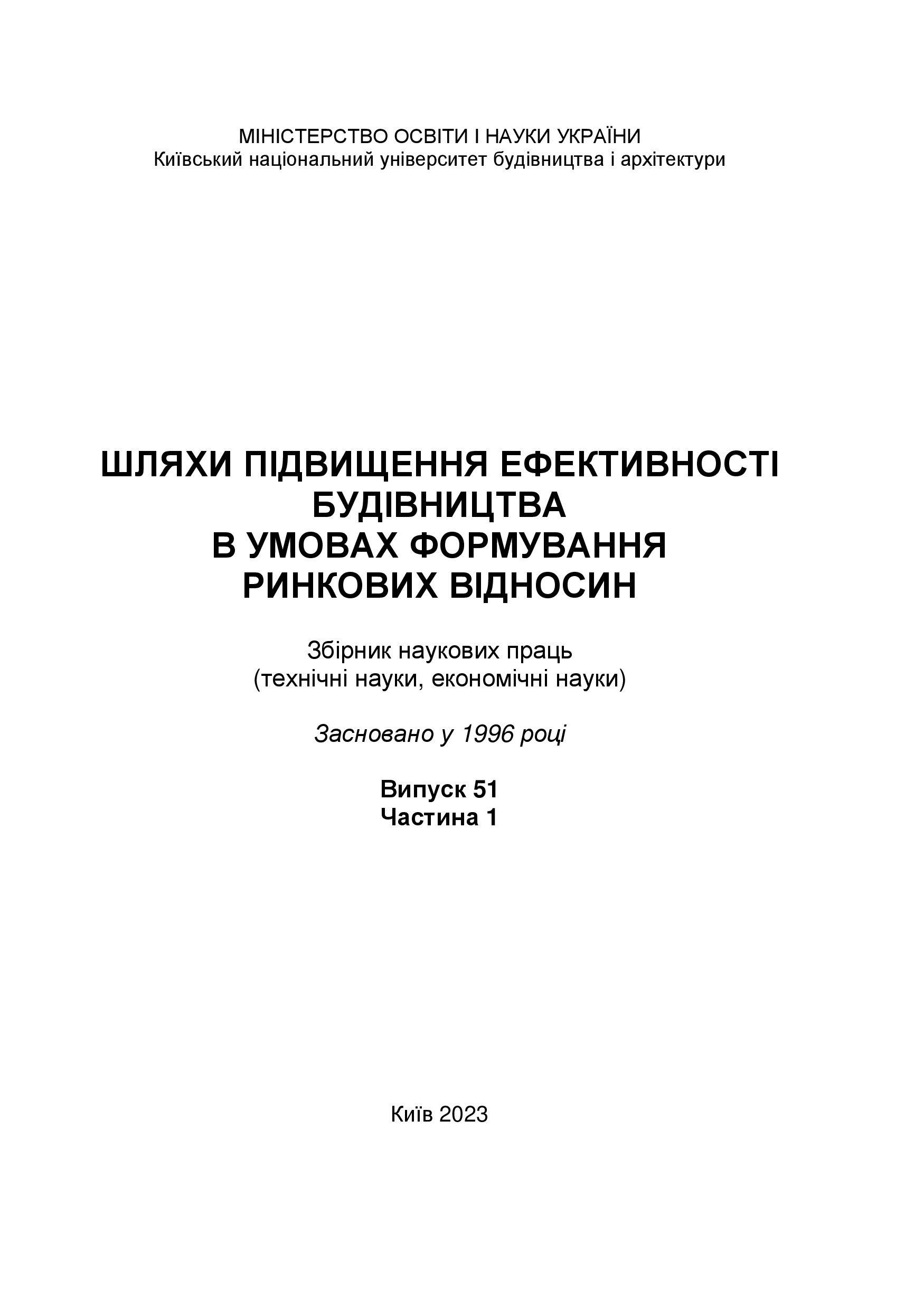Tools for stakeholder interaction and adaptation of business processes in the modern business environment
DOI:
https://doi.org/10.32347/2707-501x.2023.51(1).90-98Keywords:
stakeholders, stakeholder interaction, business processes, reengineering, digitization of business processes, management of receivables, quality, terms, pricing and cost, design and redesign, cost of design and redesign, financial, technical, production and material blocks of business process, interest management.Abstract
In the modern world, interaction between stakeholders is an integral part of business. It allows for the achievement of common goals and ensures the sustainability of enterprise development. However, stakeholder interaction is not always easy and seamless. Sometimes it can face obstacles that arise from different interests and views on business development. It is important to note that interaction between stakeholders should be based on mutual trust and understanding. In this way, companies can ensure effective interaction and achieve common goals. To do this, it is necessary to take into account the interests of all stakeholders and ensure mutual benefit in the interaction.
One approach to achieving common goals is to consider stakeholder interaction as the adaptation of business processes in new realities. Digitalization of business processes can help companies be more efficient and competitive. For example, the use of cloud technologies allows for the storage and processing of large amounts of data, which facilitates decision-making processes and ensures a quick response to changes in the internal and external environment. Business process reengineering involves a complete review and transformation of business processes in order to achieve better results. This can be useful for companies facing complex stakeholder interaction problems. For example, reviewing the communication process with customers can help provide better service and meet customer needs.
The result of stakeholder interaction and changes to existing business processes may be the replacement of internally developed algorithms with entirely new steps or the modernization of stakeholder interaction processes. Adding important elements that allow for the management of other stakeholders' interests can provide expected but higher quality results. Therefore, stakeholder interaction is a key factor in business success. Considering this issue from the perspective of adapting business processes to new realities, their digitalization, and reengineering can help companies achieve common goals and ensure sustainable development. This is important not only for the company itself but also for the entire business environment, which must be stable and progressive for success.
References
Лагута Я.М. Стейкхолдерський підхід в корпоративній соціальній відповідальності компанії. Науковий вісник Міжнародного гуманітарного університету. Серія «Економіка і менеджмент» 2017, Вип.25(1) С.130-133.
Андрющенко Т.Ю., Бережна О.Б. Особливості впровадження системи управління партнерськими відносинами на підприємстві. Системи обробки інформації. 2015. Вип. 4. С. 122-126.
Кушніренко О.М. Удосконалення механізму управління бізнес-процесами в умовах посилення технологічних викликів. Східна Європа: економіка, бізнес та управління. 2020. Випуск 1 (24). С.65-70.
Продіус О.І., Найда Є.Д. Реінжинірінг бізнес-процесів як сучасна концепція управління. Науковий вісник «Економіка та управління підприємством». Серія «Економіка і суспільство», 2018. № 19. С.573-577.
Калач Г.М., Зуб П.В. Цифровізація бізнес-процесів промислових підприємств. Економіка та суспільство, (26). https://doi.org/10.32782/2524-0072/2021-26-52.
Tugai, O. A., et al. Organizational and technological, economic quality control aspects in the construction industry: collective monograph. Lviv-Toruń: Liha-Pres. 2019. 140 р.
Nikolaiev, V. P., et al. Technical and economic aspects of real estate properties: collective monograph. Lviv-Toruń: Liha-Pres. 2019. 124 р.
Бєлєнкова О.Ю. Цифрова трансформація будівництва: механізм взаємодії бізнесу, науки, держави. Будівельне виробництво. 2019. № 66. С. 30-36.
Sorokina L.V. Informatsiini tekhnolohii yak instrument optymizatsii upravlinnia zbalansovanym ekonomichnym rozvytkom pidpryiemstva. Aktualni problemy ekonomiky. 2007. № 10. S. 189-197.
Калашников Д., Богатюк Д., Філіппов О. Організація та ВIM моделювання будівництва об'єктів на основі концепції управління вартісним будівництвом. Шляхи підвищення ефективності будівництва, 2022. 2 (50), 40–49.
Зінченко М., Гончаренко Т., Чуприна Ю., Івахненко І., Цифра Т. Реінжиніринг будівельних компаній на основі BIM-технології. Міжнародний журнал про нові тенденції в інженерних дослідженнях. 2020. № 8, С. 4166-4172.
Sorokina L.V., Hoyko A.F. (Eds.). Econometric toolkit for financial security management of construction companies. Kyiv: Kyiv National University of Construction and Architecture [in Ukrainian]. 2017. 403 p.
Титок В., Боліла Н., Рижаков Д., Поколенко В., Федун І. CALS–технологія як основа створення модулів оцінки бізнес-процесів стейкхолдерів будівельної галузі в рамках умови циклічних і сезонних коливань. Міжнародний журнал передових тенденцій в області комп'ютерних наук і техніки. 2021. №1. 271-276.
Кіщенко Т. Є., Гусарова Л. В., Боліла Н. В. Девелопмент-методологія втілення проектів інвестування будівництва. Ефективна економіка, 2018. 51. URL: http://www.economy.nayka.com.ua/pdf/6_2018/51.pdf
Боліла Н.В. Функціонально-операційна трансформація систем управління будівельним підприємством на основі CALS-технологій. Управління розвитком складних систем, 2019. 40 , 156-159.
Stetsenko, S.P., et al. Management of Adaptation of Organizational and Economic Mechanisms of Construction to Increasing Impact of Digital Technologies on the National Economy. Journal of Reviews on Global Economic. 2020. № 9, 149-164.
Ryzhakova, G., Chupryna, K., Ivakhnenko, I., Derkach, A., & Huliaiev, D. Expert-analytical model of management quality assessment at a construction enterprise. Scientific Journal of Astana IT University, 2020. 3(3), 71–82.
Stetsenko S., Sorokina L., Goiko А., Tsyfra Т., Bolila N. CALS model for forming the anti-crisis potential of construction enterprises. Scientific Journal of Astana IT University. 2020. №4. 49-57.
Downloads
Published
How to Cite
Issue
Section
License

This work is licensed under a Creative Commons Attribution 4.0 International License.
Authors who publish with this journal agree to the following terms:
- Authors retain copyright and grant the journal right of first publication with the work simultaneously licensed under a Creative Commons Attribution License that allows others to share the work with an acknowledgement of the work's authorship and initial publication in this journal.
- Authors are able to enter into separate, additional contractual arrangements for the non-exclusive distribution of the journal's published version of the work (e.g., post it to an institutional repository or publish it in a book), with an acknowledgement of its initial publication in this journal.
- Authors are permitted and encouraged to post their work online (e.g., in institutional repositories or on their website) prior to and during the submission process, as it can lead to productive exchanges, as well as earlier and greater citation of published work (See The Effect of Open Access).

